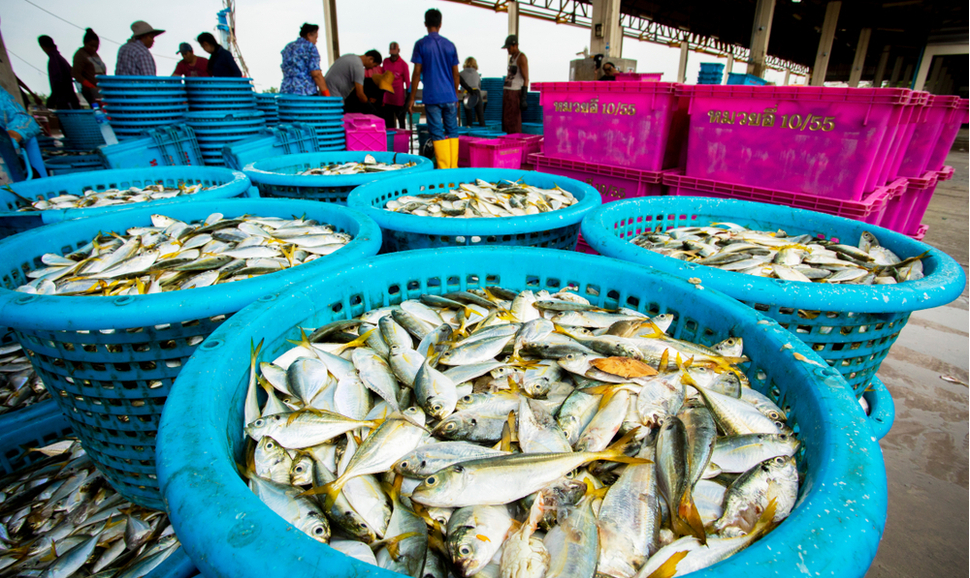
Fish, often regarded primarily for its nutritional benefits in human diets, also plays a significant role in various industrial applications.
Beyond its culinary uses, fish and its byproducts are integral to several industries, contributing to everything from animal feed to biofuel production.
This article explores the diverse industrial uses of fish, shedding light on its impact and importance across different sectors.
1. Fish Meal and Fish Oil
Fish meal and fish oil are two of the most prominent industrial products derived from fish. Fish meal is a high-protein ingredient produced from fish or fish byproducts, which are cooked, pressed, and dried to create a fine powder.
This meal is widely used in animal feed, particularly for poultry and aquaculture. The high protein content of fish meal makes it an ideal supplement for livestock, promoting growth and improving overall health.
Fish oil, extracted from the tissues of oily fish, is another valuable product with multiple industrial applications.
Rich in omega-3 fatty acids, fish oil is used not only in animal feed but also in the production of dietary supplements and functional foods.
Moreover, fish oil serves as an essential component in the manufacture of industrial lubricants and cosmetics.
Its lubricating properties and potential health benefits underscore its versatility and importance.
2. Fertilizers and Soil Amendments
The agricultural industry benefits significantly from fish products, particularly through the use of fish-based fertilizers and soil amendments.
Fish byproducts, including bones, heads, and scales, are processed into organic fertilizers that enhance soil fertility.
These fertilizers are rich in essential nutrients such as nitrogen, phosphorus, and potassium, which are crucial for plant growth.
Fish-based fertilizers contribute to sustainable farming practices by providing a natural alternative to synthetic fertilizers.
They improve soil structure, promote beneficial microbial activity, and support plant health. By recycling fish waste into valuable soil amendments, the agricultural sector can reduce dependence on chemical inputs and minimize environmental impact.
3. Bioplastics and Biofuels
In recent years, there has been growing interest in using fish byproducts for the production of bioplastics and biofuels.
Bioplastics made from fish gelatin, a protein derived from fish skin and bones, offer a biodegradable alternative to conventional plastics.
These bioplastics can be used in packaging, medical supplies, and various consumer goods, reducing reliance on petroleum-based plastics and their environmental footprint.
Fish oil is also utilized in biofuel production, particularly in the creation of biodiesel. The high-fat content of fish oil makes it a suitable feedstock for biodiesel, which is a renewable and cleaner alternative to fossil fuels.
By converting fish oil into biodiesel, industries can contribute to reducing greenhouse gas emissions and promoting sustainable energy sources.
4. Pharmaceuticals and Nutraceuticals
The pharmaceutical and nutraceutical industries also harness the benefits of fish. Fish oil, with its high concentration of omega-3 fatty acids, is a key ingredient in various health supplements aimed at improving cardiovascular health, reducing inflammation, and supporting cognitive function.
These supplements are widely recognized for their potential health benefits and are a significant market segment.
In addition to omega-3 fatty acids, fish-derived compounds are used in the development of pharmaceutical products.
For instance, certain fish species produce bioactive peptides that have shown promise in treating conditions such as hypertension and diabetes.
Research into these compounds continues to expand, highlighting the potential of fish-based ingredients in advancing medical science and improving health outcomes.
5. Waste Management and Environmental Applications
Fish processing generates substantial waste, including bones, heads, and skin. However, these byproducts can be repurposed for environmental applications, including waste management and pollution control.
Fish waste is often processed into products used for bioremediation, which helps to clean up contaminated environments by breaking down pollutants.
Additionally, fish byproducts can be employed in the production of biochar, a form of carbon-rich material used to improve soil health and sequester carbon.
Biochar created from fish waste contributes to soil fertility, water retention, and overall agricultural productivity.
This application not only helps manage waste but also supports sustainable environmental practices.
In summary, the industrial uses of fish extend far beyond the kitchen table, reflecting the versatility and value of this resource.
From fish meal and fish oil to fertilizers, bioplastics, and pharmaceuticals, fish and its byproducts play crucial roles in various sectors.
By leveraging fish waste and byproducts, industries can contribute to sustainable practices, reduce environmental impact, and advance technological innovations.
As we continue to explore and utilize the industrial applications of fish, we not only enhance our resource efficiency but also promote a more sustainable and environmentally responsible future.
Read Also: Sloes: History, Nutrition, Health Benefits and Growing Guide





